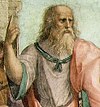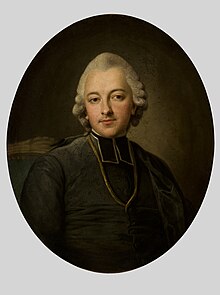
Back خيال سياسي Arabic Ficción política Spanish داستان سیاسی Persian Politique-fiction French סיפורת פוליטית HE राजनीतिक कथा Hindi Fantapolitica Italian ポリティカル・フィクション Japanese 정치물 Korean Fikcja polityczna Polish


















Political fiction employs narrative to comment on political events, systems and theories. Works of political fiction, such as political novels, often "directly criticize an existing society or present an alternative, even fantastic, reality".[1] The political novel overlaps with the social novel, proletarian novel, and social science fiction.
Plato's Republic, a Socratic dialogue written around 380 BC, has been one of the world's most influential works of philosophy and political theory, both intellectually and historically.[2][3] The Republic is concerned with justice (δικαιοσύνη), the order and character of the just city-state, and the just man.[4] Other influential politically themed works include Thomas More's Utopia (1516), Jonathan Swift's Gulliver's Travels (1726), Voltaire's Candide (1759), and Harriet Beecher Stowe's Uncle Tom's Cabin (1852).
Political fiction frequently employs satire, often in the utopian and dystopian genres. This includes totalitarian dystopias of the early 20th century such as Jack London's The Iron Heel, Sinclair Lewis' It Can't Happen Here, and George Orwell's Nineteen Eighty-Four.
- ^ ""HIST 294 - Political Fiction", Wesleyan University, accessed 12 December 2005 Archived September 16, 2006, at the Wayback Machine
- ^ National Public Radio (August 8, 2007). Plato's 'Republic' Still Influential, Author Says. Talk of the Nation.
- ^ Plato: The Republic. Plato: His Philosophy and his life, allphilosophers.com
- ^ Brickhouse, Thomas and Smith, Nicholas D. Plato (c. 427–347 BC), The Internet Encyclopedia of Philosophy, University of Tennessee, cf. Dating Plato's Dialogues.
© MMXXIII Rich X Search. We shall prevail. All rights reserved. Rich X Search